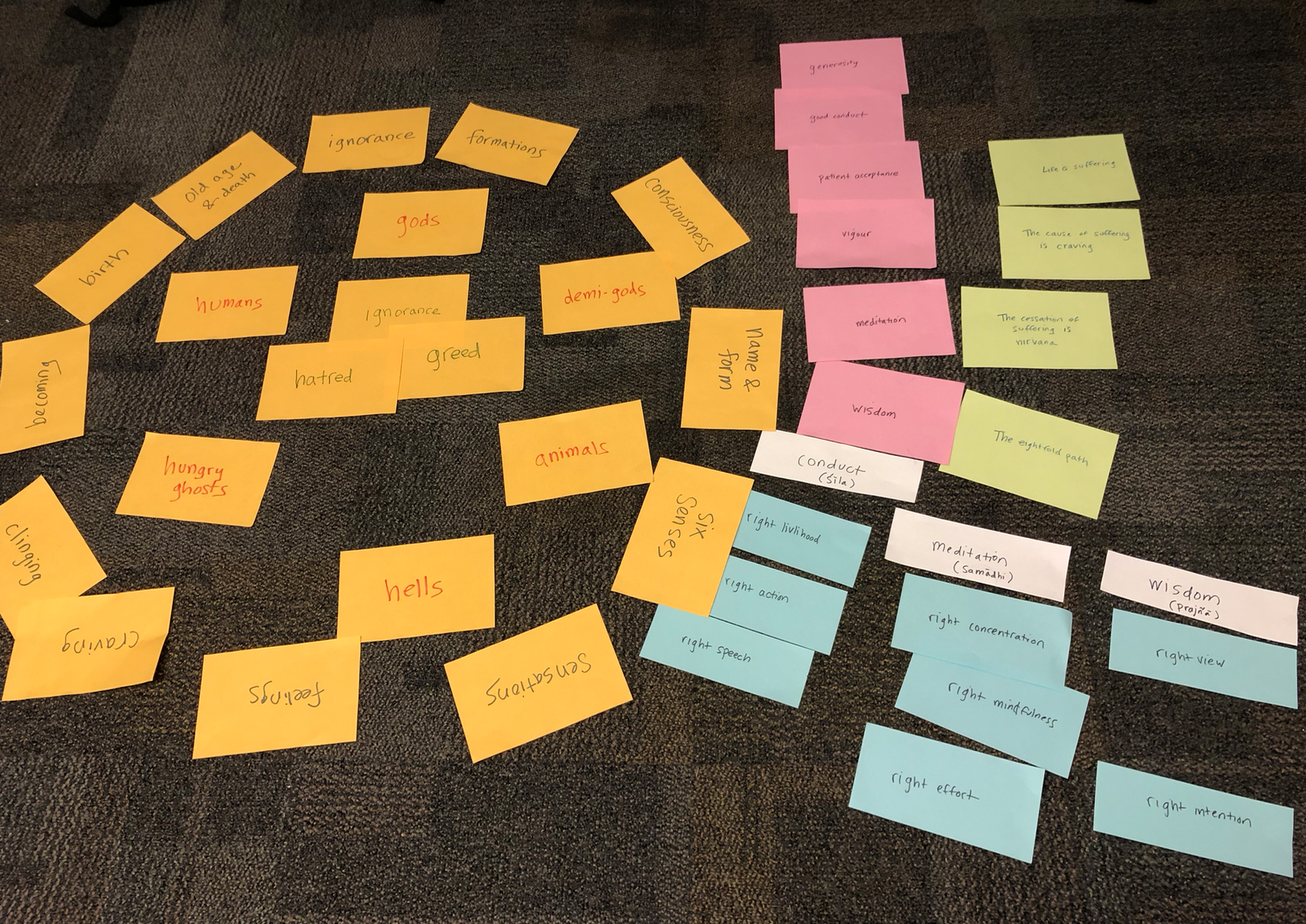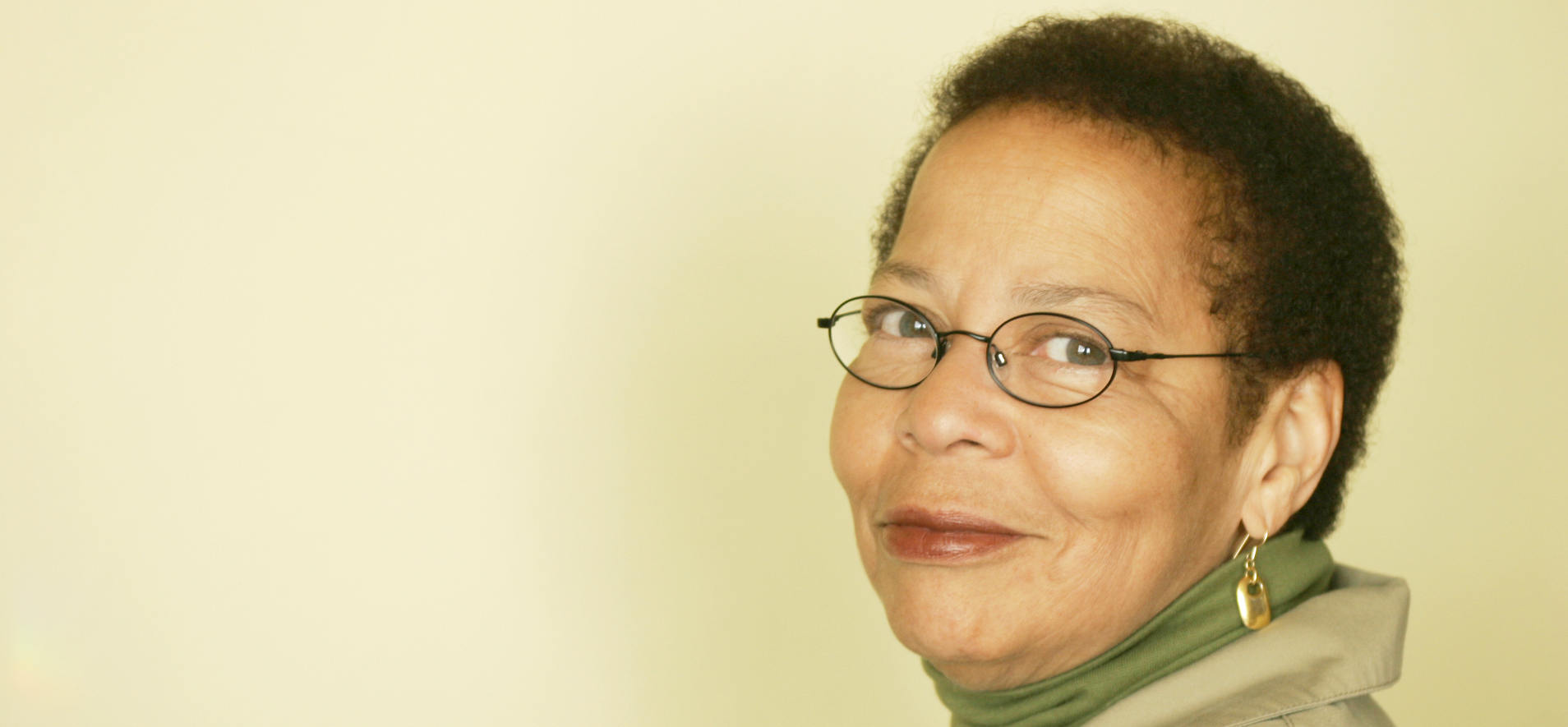Description
Dr. Jan Willis discusses her lifetime of teaching Buddhism and Buddhist studies courses. She reflects on helping students broaden their horizons and find their true selves, just as she discovered the wider world of higher education after surviving childhood in the segregated south. In her teaching, she uses stories to connect students with the pivotal moments in history that shape our understanding of social justice and engaged Buddhism. Jan is a Professor Emerita of Religion at Wesleyan University in Connecticut and Visiting Professor of Religion at Agnes Scott College in Decatur, Georgia. In addition to her research on Tibetan Buddhism, Buddhist saints’ lives, and women and Buddhism, she also publishes on her personal experience of being a Black woman in Buddhist studies. This episode was recorded in January 2022.
Memorable Quotations
“I was raised in a mining camp outside of Birmingham, a town that was a mining camp that was split down the middle by one street. Blacks on one side, whites on the other. We dare not cross the road.” Jan Willis
“I praise all of my strong black women teachers.” Jan Willis
“I saw math and music as having universal languages. Here are languages that can be understood by anyone who reads that language.” Jan Willis
“I was one of those faceless 15 year olds, tenth graders, who marched with King. So in ’63 that had happened and that transformed my whole life. But in ’65, when I got these scholarships, the Klan marched on our home. This was something that we’d grown up knowing about, the Klan targeted people from time to time.” Jan Willis
“It was very, very dangerous I knew from the beginning, to be conspicuous in the south. It was frightening.” Jan Willis
“So the Klan comes,… They set up a cross, 12 or 15 foot in front across the street from the house in an alleyway. And they light it. So I’m amazed. I’m awestruck. I’m dumbfounded, gobsmacked. Because first, the robes are not all white. There are red robes and there are purple robes, and the second thing is that they’re men and women and children enrobed. This really strong urge came up in me to go out and talk to them… I wanted to teach them that just as they were a family, we were a family inside this house just like them.” Jan Willis
“I call it a ‘dual education,’ our teachers made sure that we not only learned English literature, but we learned black literature. That we not only sang the national anthem, but we sang the negro National anthem as well. That we recited poems… That I can meet people, African-Americans today, a number of times I can meet them if they are my same age we can start reciting the same poem, we’ll make the same hand gestures. So there was this dual education going on all the time which said ‘you are somebody,’ ‘You have a tradition,’ and we celebrated that.” Jan Willis
“Those teachers were practicing ‘fugitive pedagogy,’ what Jarvis Givens calls it, because it’s an education that’s meant to uplift the spirit as well as to uplift self-esteem.” Jan Willis
“I don’t want to convert those students, but I want those students to find their true selves, which I think are compassionate and capable. I want to help them discover that.” Jan Willis
“My mission turned out to be helping them discover what they knew and helping them find the tools to research it further.” Jan Willis
“Culturally, I’m African-American, but if I want to solve a problem, Buddhism has a lot of answers.” Jan Willis
“I say, ’10-20 years from now you won’t remember all these dates, and this, that, the other. What do you think you’ll carry forward as the most important teaching of the Buddha?’ I think early on they’re saying things, they come into the class some of them might say ‘wisdom,’ ’emptiness,’ they don’t understand any of that, but they’ve read it somewhere in there.” Jan Willis
“Dhammapada 183, which says ‘Do no harm, practice virtue, discipline the mind. This is the teaching of all the buddhas’ I think that summarizes the whole thing. If you can get that flavour to students, it’s the whole kit and caboodle right there.” Jan Willis
“Doing no harm is right there, it’s Martin Luther King’s nonviolent resistance… Because we’re all in this together and we’ll all go down together unless we can learn to live together.” Jan Willis
“King used to say there are three evils of society: over consumerism, militarism, and racism. Now in Buddhism, that racism would be the ignorance, the militarism is hatred, and the consumerism is greed, right? But in his last year he changed consumerism to poverty.” Jan Willis
“We’re all connected. I can’t be who I am until you are who you ought to be, and you can’t be who you ought to be until I am who I ought to be. It’s so clear.” Jan Willis
LINKS
Jan Willis’ personal website
Jan Willis, Dreaming Me: Black, Baptist and Buddhist- One Woman’s Spiritual Journey (Wisdom Publications, 2008) buy it here
Jan Willis Articles on Lion’s Roar
Article on Birmingham children’s march 1963
Jarvis R. Givens’ book, Fugitive Pedagogy: Carter G. Woodson and the Art of Black Teaching
bell hooks’ book, Teaching to Transgress: Education as the Practice of Freedom (Routledge 1994)
Arthur Llewellyn Basham’s book, The Wonder that Was India.
Walpola Rahula’s book, What the Buddha Taught.
Steven Batchelor’s book, Buddhism Without Beliefs.

